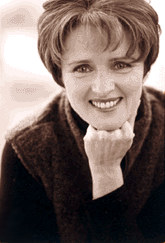
Psychologist / Therapy Coach, Dr. Susan LaCombe
99% get it wrong.
They think counseling is about fixing broken people.
NOT . . .
You know when I first heard about the "revolution" in brain science and how it was enriching and expanding our understanding of human behavior, I was very excited about what it meant. Finally, science was catching up with what therapists were seeing in their offices.
For anyone who was a keener about therapy this was going to bring it out of the dark ages and really explain how--scientifically--therapy was making valuable contributions in the lives of many people.

However, its impact on the approach to counseling has had little discussion outside the mental health profession. It was like watching a lite firecracker crackling and then sputtering to the ground.
I found this state of affairs frustrating because, as a psychologist, I was getting great results for my clients using techniques based on this research.
You might recognize these techniques and/or treatment models in the phrases "holistic therapy", "mind-body psychotherapy" or "mindfulness therapy". While therapists using these techniques might not conceptualize them as such, they are actually utilizing right brain-based strategies. This distinction between right brain and left brain-based work is what underlies our understanding of what is most effective in counseling.
Collectively these treatment models represent a new paradigm shift in the practice of mental health counseling.
Spreading the word.
Creating myShrink was thus a way to spread the word to the general public and to my fellow therapists. The site not only describes research in terms the average person can understand, but more importantly, it explains why and how this "new" holistic, mind-body counseling can be supremely effective in making fundamental and long-lasting personal changes.
Personally speaking...
I could never have completed this complex project without having had the benefit of body psychotherapy. Not only did this therapy experience change the way I do counseling with my clients, it also changed my life by giving me a calmer disposition and greater "embodied" awareness. Creating myShrink was thus a way to express my professional and personal enthusiasm for a new way of doing counseling.
As I began to study body psychotherapy as a clinician from a neuroscience perspective, I realized that the line between mental illness and mental well-being was quite thin. I also realized that the basic insights of this new therapy were easily understandable, and that they could dispell the almost universal fear and suspicion surrounding mental health counseling if presented with humor and enthusiasm.
What better way to destigmatize my profession than to co-opt a powerful stereotype to describe this site?
And with that realization, "myShrink's" tongue-in-cheek name was born!
myShrink...changing our approach to therapy
By hijacking a somewhat derogatory term for the sake of something exciting and new (ie. "myShrink") I am reframing how we think about therapy. In my view, mental health counseling offers more than just support and advice on how to think about our problems.
In demystifying the process, my aim is to destigmatize mental health counseling and promote its use not only for symptom relief but as a means of enhancing all areas of one's life.
And because the evidence seems pretty conclusive: psychotherapy changes the brain....I believe that almost anyone can benefit from counseling. Let me repeat that with this proviso: With the right therapist, almost anyone can benefit from therapy.
The science of counseling approaches.
myShrink isn't just about body psychotherapy, although that was how I personally came to understand the science of mental health counseling. The field of neuroscience has literally exploded with insights on how change occurs in the brain. I soon found that this information made it easier for me to appreciate the power of my own personal therapy.
Consequently, on this site you'll learn how the brain functions and how this knowledge can enhance and inform your counseling. Hopefully, you'll be better informed when making decisions on using therapeutic services.

I'm a therapy groupie.
It's been wonderful building myShrink at a time when there's such an abundance of new developments and optimism in the field of mental health counseling. You might say I'm a little passionate about the subject.
It's been so much fun creating myShrink - I hope it shows!
So on that note, I'd like to share with you the following thoughts and inspirations that capture the philosophy behind this site:
myShrink is about...
- myShrink is a resource for clients of mental health counseling services, especially those who see it as a way to further their life goals.
- My view is that mental health counseling is like education - it can create profound differences in people's lives. Like education the impact of those changes is felt most dramatically as one's life unfolds.
- Available research confirms that deep personal change is possible at any age. But like everything worthwhile, counseling requires a commitment of time, effort and expense. It is my hope that myShrink will inspire you to begin, and to continue with, your therapeutic work.
- I agree with others that new insights for different counseling approaches from neuroscience, trauma and attachment research have forged a paradigm shift in the field. I feel these advances bring a positive, normative approach to health and healing. (Crittenden, 1997; Schore, 2003)
myShrink was inspired by the following views that normalize and destigmatize mental health problems:
- Trauma and it's related difficulties are best represented as points along a continuum (Crittenden, 1997; Scaer, 2005) that ranges from "highly adaptive" to "learned helplessness" (Seligman, 1975). [In other words, there's probably only a handful of people on this planet who have it "all together". So...maybe we should rethink what we mean by "mental illness" eh?]
- Many problems related to mental health are rooted in trauma and attachment processes (Schore, 2003). [Ditto above.]
- Your relationship with your parents was instrumental in how your nervous system developed. Similarly, your relationship with an empathetic and attuned counselor will be instrumental for your success in personal counseling. (Schore, 2003). [Hence, this is why I get so darned enthusiastic about the future of counseling!]
- Human beings are strongly motivated by a need for safety. The evidence suggest that we are "hard-wired" to pay close attention to anything and everything related to safety or reproduction (Ledoux, 1996). [In other words we may find ourselves behaving or feeling in ways that have no conscious explanation.]
- Scientific research into the mind-body connection (especially the effects of stress) reveals that our thoughts and emotions can positively and negatively influence the immune system as well as the functioning of the body's organs. (Goleman & Gurin, 1993). [The implications are HUGE for the future of counseling and, I might add, even the nature of health care in the coming decades.]
- With increasing safety, consciousness of experience is heightened (Scaer, 2005) [In other words how can you really stop and smell the roses when you feel fear in your body?]
"Invest in yourself and you put energy into your life!"
I wish you well on your journey,
Susan
